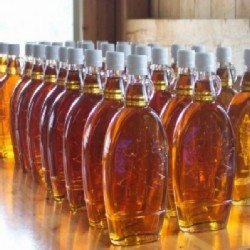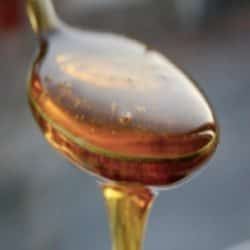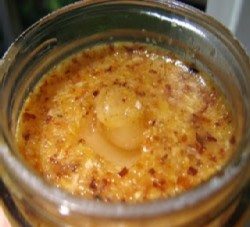What is the Best Sugar for Kombucha
Most experts agree that cane sugar is the best choice for brewing kombucha, and that refined white cane sugar is the most reliable choice for beginning brewers. On the other hand, those same experts also agree that you can get fantastically delicious and nutritious kombucha tea by choosing other sweetening options. In this article, you’ll find out why cane sugar is the top choice among professional and home-based kombucha brewers. You’ll also find out how using honey, molasses, maple syrup, and agave syrup can give you a more complex and healthy kombucha tea. If you don’t have a basic kombucha recipe, you can get complete brewing instructions here. We also have a general article explaining the different types of sugars you can buy and how they differ.
NOTE: If you’re concerned about even the residual amount of sugar in standard kombucha, see the brewing tips in this article.
Sugar and Kombucha SCOBY: How it Feeds
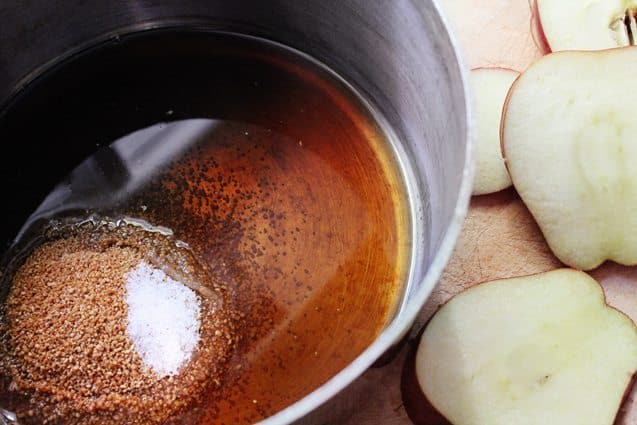
Your SCOBY eats breaks down sugar, eating it and releasing all those beneficial enzymes that make Kombucha, well, Kombucha. Just because too much sugar is not good for you does not mean it’s not good for your SCOBY. Think of sugar as food for your SCOBY. The fermentation process breaks down the sucrose into more basic molecules fructose and glucose. This is food for the yeast which also in turns feeds the bacteria living on what the yeast breaks down.
- Sucrose (C12H22O11) = Regular Table Sugar = Fructose + Glucose
- Fructose (C6H12O6) = Natural Fruit Sugar
- Glucose (C6H12O6) = The most commonly used energy source in the biological world. Also known as dextrose.
How does your SCOBY process the sugar? The fermentation process breaks down the sucrose into more basic molecules fructose and glucose. This is food for the yeast which also in turns feeds the bacteria living on what the yeast breaks down.
Blending Different Sugars
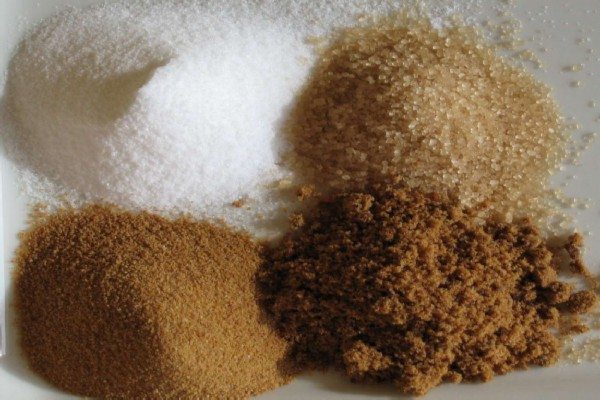
You can blend different types of sugars in your Kombucha. This is recommended, especially if you want to experiment with sugar sources that are not cane sugar, processed white sugar, or evaporated cane juice. Note that you may be able to eventually switch your Kombucha ONLY to a specific type of sugar after you train it a few times with a mix — if you don’t do that, your SCOBY might have health issues.
Types of Sugars For Kombucha
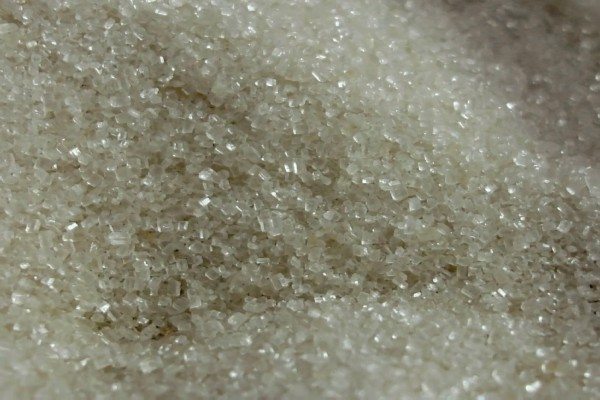
You have a large number of different sugar choices to choose from when it comes to brewing kombucha. Keep in mind that some of these are easier for your SCOBY to digest. The type of sugar you choose may affect the final flavor profile of your brew. The standard choices of cane sugar, processed white sugar, and evaporated cane juice will usually taste about the same. The other choices WILL definitely influence flavor (as compared to the three standard choices).
Cane Sugar (The Traditional Choice)
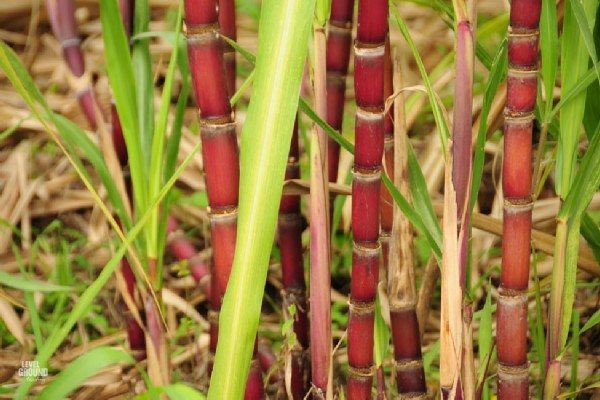
The history of sugarcane (Saccharum officinarum) in Asia goes back even further than the history of the tea plant (Camellia sinensis). It’s likely that the first tea brewers in China had access to some form of cane sugar from trade with India, and the fact that the kombucha SCOBY (the Symbiotic Colony Of Bacteria and Yeast) generally grows best on a mixture of black or green tea sweetened with cane sugar seems to prove that theory. For information on which tea is best for kombucha, read this article.
There are several types of sweetener made from the sugar cane plant:
- refined white sugar
- evaporated cane juice
- raw cane sugar
- brown sugar
- molasses
- sugar cane juice
Each of these sugars produce a slightly different result and affect the brewing and fermentation process in different ways. The sugar you choose will depend on how much time you have for fermentation, what your “normal” fermentation cycle is like, and what you want the finished kombucha tea to taste like.
We recommend Organic cane sugar as the best choice, but you can certainly use other sugars just fine. We prefer organic because we want the best, healthiest ingredients in our brew. But it’s not essential to get organic if you don’t care about that.
Refined White Sugar (The Beginners Choice / Budget Choice)
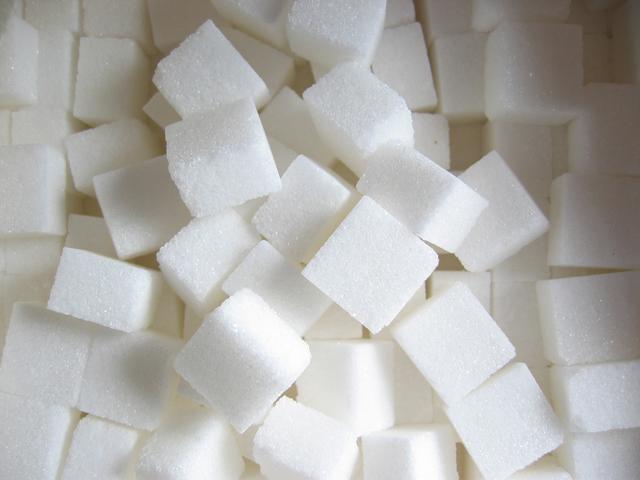
Refined white sugar is just that: refined. That means that there is little chance that any of the potentially harmful chemicals used in the refining process remain in the sugar. However, many people link refined white sugar with bad health and diabetes as well as harmful chemicals. While it’s true that when humans eat too much white sugar they run the risk of developing serious health problems, a SCOBY isn’t human, and SCOBYs thrive on pure sugar. What’s more, the SCOBY will eat and transform most or all of the sugar in your kombucha, depending on how long you let it ferment. Unless you add more sugar to your finished kombucha tea for flavoring or for secondary fermentation, you probably don’t have to worry about kombucha being a source of sugar in your diet. (If you’re wondering what second fermentation means, check out this article.
Refined white sugar is sugarcane that has been highly processed so that the only things left are the pure crystals of sucrose. This means that the vitamins, minerals, and other natural compounds normally present in the juice extracted from the sugarcane plant have been removed; most of these make up the molasses that is the primary byproduct of the sugar refining process. This refining process involves the use of high heat and chemicals like phosphoric acid.
Pure sucrose is easily digested and broken down by the microorganisms in the SCOBY. Because it’s a pure form of sugar, every batch of refined white sugar is essentially the same, and that means you’ll have a higher probability of getting the same results every time you brew a batch of kombucha tea. Of course, there are other things like the health and age of your SCOBY, your brewing environment, and the water and tea you use that will change the kombucha brew as well, but if you want to make sure that one factor of the primary fermentation is always consistent, refined white sugar is your best bet.
NOTE: Refined white sugar can also be made from sugar beets instead of sugarcane. The end result is the same, but the beets go through even more processing than the sugarcane does, and more artificial chemicals are used. In addition, some people have concerns about the fact that many sugar beets have been genetically modified to be standardized.
Evaporated Cane Juice (The Least Processed Choice)
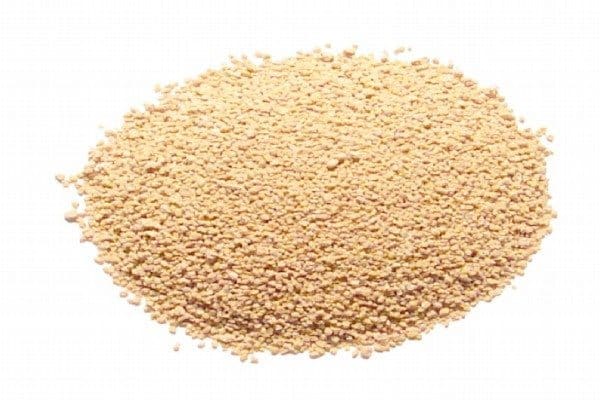
A good alternative to refined white sugar is something called “evaporated cane juice” or sometimes “whole cane sugar.” This is sugar that has not been completely processed, and still retains some of the vitamin-rich molasses in its crystals. It can be light or dark gold, depending on the level of processing. One popular brand in the United States is Sucanat.
It takes humans and SCOBYs alike more time to digest this type of sugar because the sugar molecules are larger and more complex, and also because the extra nutrients slow down the digestive process. Many brewers find that the fermentation process goes more evenly when using lightly-processed sugar like this. The slower fermentation also gives your kombucha more time to develop flavor and complexity. If you live in a hot climate, and generally find that your brew gets sour too quickly, try using evaporated cane juice instead of refined white sugar, and see if that helps you extend your brewing time for a more balanced flavor.
Note, this is the preferred choice for many brewers who don’t mind a few extra days of added brewing time for a more complex taste profile.
How Much Evaporated Cain Juice to Use in Kombucha: When you’re making kombucha with evaporated cane juice, use the same quantity as you would for refined white sugar.
Raw and Brown Sugar (Experimenter’s Choice)
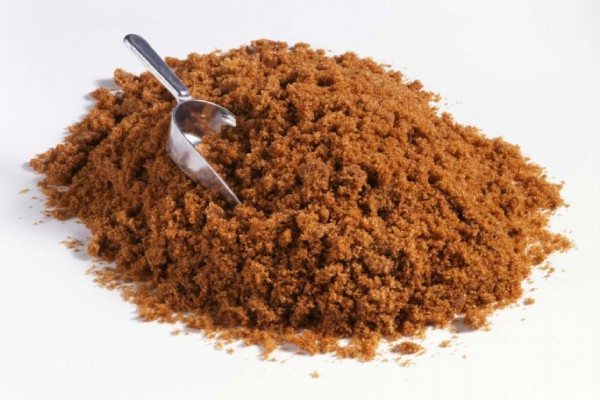
Note: raw/brown sugar WILL definitely affect the taste of your Kombucha. Only brew with this type of sugar if you have spare SCOBYs and you want to experiment with flavor profiles. Initially you may want to blend with another sugar type.
When sugarcane is only minimally processed, the result is raw or brown sugar. (Note: The term “raw” may also be used on labels to indicate evaporated cane juice, depending on the manufacturer.) This type of sugar either has a percentage of its molasses left in the mix, or has a certain amount of molasses added back into the final product. In general, commercially-produced brown sugar is white sugar with added molasses, while raw sugar retains some of the original molasses from the sugarcane juice. In both cases, there is a significantly greater proportion of other nutrients to the basic sucrose crystals, and this will change the way your kombucha develops and it may change the final taste.
These unrefined cane sugars are easy to find in ethnic grocery stores. Look for piloncillo in a Mexican market, muscovado in a Philippine grocery, jaggery where they sell Indian or African groceries, and panela in shops specializing in food from South America.
Because there are so many other non-sucrose elements of brown sugar, the SCOBY will have a harder time breaking it down, so you should expect a slower fermentation time. Some people have reported that the darker brown sugars give them a kombucha that ends up with a sour taste (as opposed to the normal acid flavor), or that the final product is “funky” or “yeasty.”
How Much Raw Sugar to Use in Kombucha: You can use the same amount of raw or brown sugar in a recipe as you would refined white sugar, but be prepared to experiment until you find the sugar that works for you and your SCOBY. Because the added elements in unprocessed cane sugar may potentially damage your SCOBY, it’s a good idea to wait until you have a supply of extra SCOBYs before trying brown sugar in your initial fermentation recipe. If you do accidentally damage your SCOBY, you can easily find a new one; use this article for sources.
Molasses (Mineral Boost Choice)
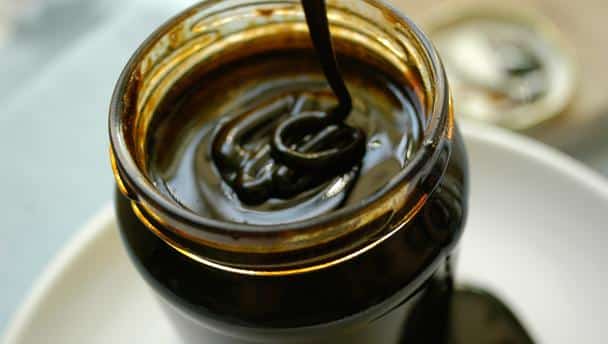
All of the vitamins and minerals (calcium, potassium, and iron, among others) that are removed from refined white cane sugar end up in molasses, which is also bottled and sold as a sweetener. This thick black or brown liquid isn’t as sweet as sugar, and it will take the SCOBY even longer to break down the long molecules in molasses into the short sucrose mouthfuls it prefers.
The plus side of using molasses for your brew is that all of those vitamins and minerals that your SCOBY ignores will stay in the finished tea, and you’ll get all their health benefits. Several studies have shown that using a combination of molasses and black tea produces a kombucha that is particularly rich in lactic acid components. These probiotics add even more health benefits. For a full list of the health benefits in kombucha, read this article.
How Much Molasses to Use in Kombucha: If you’re replacing the refined white sugar in a recipe with molasses, you’ll need to convert the dry measurement of the sugar into the liquid measurement of the molasses by increasing the amount of molasses by 33%. In other words, if you normally use 1 cup of sugar, use 1.33 cups of molasses. However, most experts recommend using molasses in a mixture of sugars, rather than using molasses alone. Just feeding your SCOBY pure molasses may well kill it if you don’t do it slowly or don’t mix in other sugars. You’ll have to test this for yourself, however — but just make sure you have extra SCOBYs.
Honey (Healthy Enzymes Boost Choice)

The other natural sweetener that would have been available to those early kombucha brewers in China is honey. Honey is a popular choice for health-conscious brewers because it contains glucose and fructose (the sugars in sucrose that the SCOBY eats) but also has the vitamins (like B-complex, C, and A) and minerals (like calcium, iron, and magnesium) that the SCOBY ignores but which are great health boosters. If you want to use honey for your primary fermentation, here are some things to consider:
Raw honey contains natural antibacterial agents that may damage your SCOBY. It’s a better idea to choose pasteurized honey for the primary fermentation, and use raw honey for secondary fermentation.
The brewing time may be longer and your SCOBY may end up thinner.
Your particular SCOBY might not be able to process honey at all. There are varieties of SCOBY that have evolved to use honey instead of cane sugar, producing a type of kombucha called jun.
Because even pasteurized honey is a natural product, one that changes with the seasons and is affected by the flowers the bees harvested for the nectar, the actual breakdown of any particular honey will be different. Keep this in mind when you’re experimenting with using honey. You can find some ideas for recipes to start with in this article. Note that there is a special sort of honey-based Kombucha you can brew called Jun Tea, which uses a different type of SCOBY.
How Much Honey to Use in Kombucha: Honey is sweeter than sugar, so you’ll need less of it in your recipe. Start by replacing each cup of refined white sugar with one cup minus two tablespoons of honey. Remember, the naturally strong flavor of honeys like buckwheat or chestnut will tend to carry over into the final product. Avoid using honeys that have had extra flavor added (like fruit-flavored or cinnamon) because these may contain oils that will cause problems for the SCOBY.
Agave and Maple Syrup (Expanding the World of Kombucha Flavor Profiles)
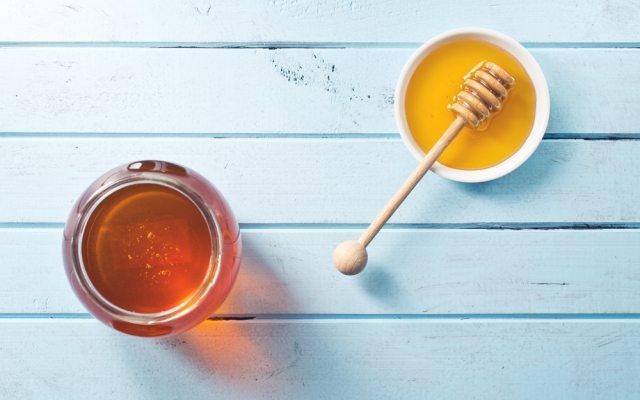
Because neither agave plants nor sugar maples grew in China two thousand years ago, no one was sweetening their kombucha brews with agave or maple syrup, but today’s brewers are quickly adopting these alternative sweeteners in both the primary and secondary fermentation. Because both agave and maple syrup have different ratios of glucose and fructose compared to cane-based sugars, you’ll definitely see a difference in how your kombucha develops and tastes.
Maple syrup. Maple syrup is good for adding a deeper flavor to your kombucha, as well as essential minerals like potassium and calcium. Be sure you’re using pure maple syrup, not a cheaper brand that is a mixture of maple syrup and corn syrup. Because maple syrup is primarily sucrose and glucose, the SCOBY should be able to process this sugar easily. Maple syrup is slightly sweeter than refined white sugar, but not significantly, so you should be able to substitute an equal amount in your recipe. However, you’ll need to convert the liquid measurement of the syrup into the dry measurement of the sugar by using 1.5 cups of maple syrup for every 1 cup of sugar. Maple syrup is also a good sweetener to use in a blend of sugars.
Agave syrup. Also labeled as “agave nectar,” this sweetener is mostly fructose, with very little glucose. Some brewers have noted that primary fermentation done with agave syrup alone produces a sour brew, so most experts recommend using agave in combination with regular cane sugar. What’s more, since the glucose is used by the SCOBY to create beneficial gluconic acids that add so much to the health benefits of kombucha, you’re not going to end up with the optimal brew if you rely only on agave for your sweetener. Finally, because the SCOBY does need glucose to survive, a long-term diet of agave nectar will harm your SCOBY. It’s best to use agave in a mixture of other sugars. Start by using a 50/50 mix of agave syrup and refined white cane sugar or evaporated cane juice, and go from there. Agave will not significantly affect the flavor of the final kombucha tea.
Sugars to Avoid
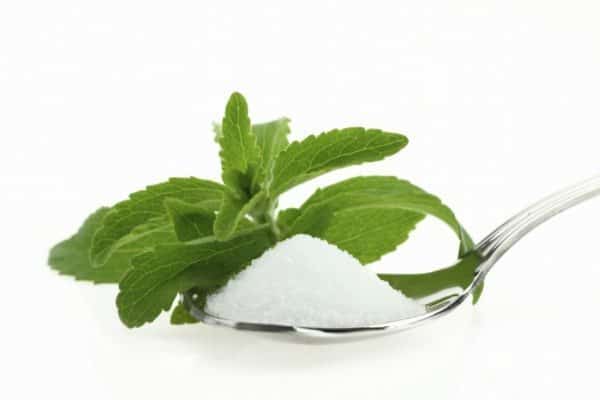
Stevia: (comes from cactus plants). The yeast cannot process Stevia — not recommended as a sugar source as your SCOBY may starve.
Raw Unproccessed Honey: the antibacterial properties of honey will cause problems for your SCOBY. You can use pasteurized honey, but not raw honey. You can play with this though for Second Fermentation if you wish — just keep in mind it may effect the carbonation levels.
Xylitol: like Stevia, Xylitol is not fermentable by the yeast and your SCOBY will starve. Don’t use it.
Corn Syrup: Don’t use the artificial corn syrup. It’s not good for you and it’s not good for your SCOBY either. If your body can’t even break down this stuff, how do you think the SCOBY will fare? Don’t even consider it.
Lactos (milk): Kombucha cannot break down lactos. If you want to break down lactos, look at milk kefir grains which can ferment milk into kefir. Kombucha, however, cannot.
Artificial Sweeteners (Erithritol, Aspertame, Sucralose, Saccharine): this is not real sugar and not food for SCOBYs. Absolutely do not use any of these in Kombucha — either during first or second ferments!
Sugar Types & Brewing Times
Changing up the sugar you use to brew the primary fermentation may significantly change a) the brewing time of the fermentation and b) the taste. Here’s a detailed chart I’ve put together showing a guide to the brewing times and ratio of sugars to use when making Kombucha, if you brew using different types of sugar sources for the primary fermentation. Please also read our how to flavor the primary fermentation for more guides on switching to different sugar sources.
General Brewing Advice when Experimenting with Different Sugars
- Before you start experimenting with sugars, make sure you have a good supply of backup SCOBYs.
- Start slowly. Your SCOBY may need some time (i.e. several batches) to adjust to a new sugar. This is called ‘Training your SCOBY’
- It may be a good idea to mix in different sugars (at least at first). This may lead to better results.
- Keep notes of the process and the final flavor, so that you know what to do and what to avoid in the future.

